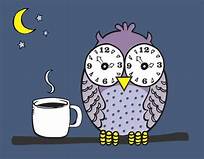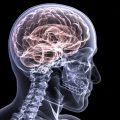by Scott Tong, MD
Virtually everyone’s experienced a night of tossing and turning – one in three adults reports they have trouble falling or staying asleep – but for some, insomnia becomes a long-term challenge.Chronic insomnia, defined as disrupted sleep at least three nights per week for at least three months, can affect health in numerous ways: impacting mood and cognition; contributing to hypertension, diabetes, heart disease, kidney disease, high blood pressure and obesity; and worsening chronic pain issues (e.g. migraine, shingles, musculoskeletal pain).
I realize that in today’s time-pressed world, a full night’s sleep has become akin to a luxury. As our lives become busier with work and family, and even more extensive use of electronics, sleep cycles are certain to be further affected. But I can’t emphasize enough how vital sleep is to overall health and well-being. Many essential physiological activities that aid digestion, cell and tissue repair and growth, muscle growth, protein synthesis and release of growth hormone occur mostly, or sometimes only, during sleep. It also affects the endocrine system, responsible for regulating stress hormones, insulin and other important functions.
If worrying about insomnia is keeping you up at night, I offer the following advice to help you sleep easy.
Identify the cause
Insomnia can be the result of psychiatric issues, medical conditions, specific substances, lifestyle, unhealthy sleep habits or a combination of factors. Pinpointing the root cause or causes can often help us go beyond simply relieving symptoms.
Medical conditions that can cause insomnia include: nasal/sinus allergies, gastrointestinal problems, endocrine issues such as hyperthyroidism, restless leg syndrome, sleep apnea, arthritis, asthma, chronic pain, neurological conditions such as Parkinson’s disease, as well as some of the medications taken to treat them. Additionally, for women, menopausal symptomssuch as hot flashes, and for men, an enlarged prostate whichcauses frequent nighttime urination, can be major sources of sleep disturbance.
Mood disorders, including depression and anxiety, can make it hard to sleep. A common but concerning pattern can be set when you worry about future events, feel overwhelmed by responsibilities or feel overstimulated, night after night. I see increasing numbers of patients in my practice who are now fearful of the entire sleep experience after many nights spent in an unrestful state of wakefulness. Fortunately, this cycle can be interrupted with the appropriate sleep hygiene therapy, explained below.
Lifestyle. If you work late into the night, take long naps in the afternoon, or work shift hours, it can be difficult to establish solid sleep routines.
It’s important to note that we can’t always successfully identify the cause, which is why I tell my patients “we may not win the war, but we can win some battles.” It may not be possible to achieve a complete cure for some who have suffered from insomnia most of their lives, but we can limit the intensity and frequency of their bouts of sleeplessness. However, research continues to unfold that illuminates the role of certain neurotransmitters in the brain known to be involved with sleep and wakefulness, and may ultimately explain why some people struggle with sleep for many years without a readily identifiable cause.
Not recommended for insomnia: alcohol and marijuana
Alcohol may help you fall asleep at first, but after a few hours, acts as a stimulant and actually increases the number of awakenings later in the night. It’s also somewhat of a slippery slope, as ever larger amounts of alcohol will need to be consumed to achieve the initial sleepiness. People who suffer from alcoholism may not realize they have sleep issues, but the fact is the sleep they’re getting after they drink is not regenerative, and will eventually affect cognition.
Marijuana, specifically CBD, does have a sedative effect, and since the loosening of restrictions with Farm Bill 2018, has been used to treat numerous medical ailments, including insomnia. However, because these products are not regulated by the FDA, you can’t be certain of the purity, dosage or ingredients claimed on the label. There might be contaminants, or a much lower or higher dosage of CBD than indicated. Some have also been found to contain larger amounts of THC, the addictive,psychotropic component of the hemp plant, which can cause anxiety and increase the risk of insomnia. For these reasons, in the majority of cases, I don’t currently recommend CBD as a treatment for insomnia.
What about sleeping pills?
Prescription sleep medicines such as Ambien and Lunesta are some of the most commonly prescribed drugs in the US, and can be quite helpful for managing occasional bouts of insomnia and jet lag-related issues. However, their drawbacks as a regulated, controlled substance due to habit-forming qualities, and side effects such as sleep walking, memory loss and increased risk of falls, need to be considered. A better option may be melatonin, a natural substance that has not been shown to cause significant,long-term side effects – just be sure not to drive or operate machinery after taking it.
The best advice: practice good sleep hygiene
My first option for patients is a range of highly effective cognitive and mind-body techniques known as sleep hygiene. These help to establish a pre-sleep routine in which patients ‘relearn’ how they fell asleep on their own as a child. Best practices include:
As Homer wisely noted in The Odyssey, “There is a time for many words, and there is also a time for sleep.” I hope thesewords help you find the incomparable, restorative power of a good night’s sleep, every night.





